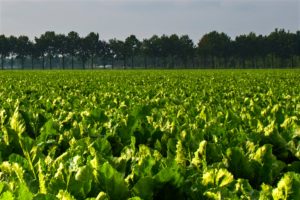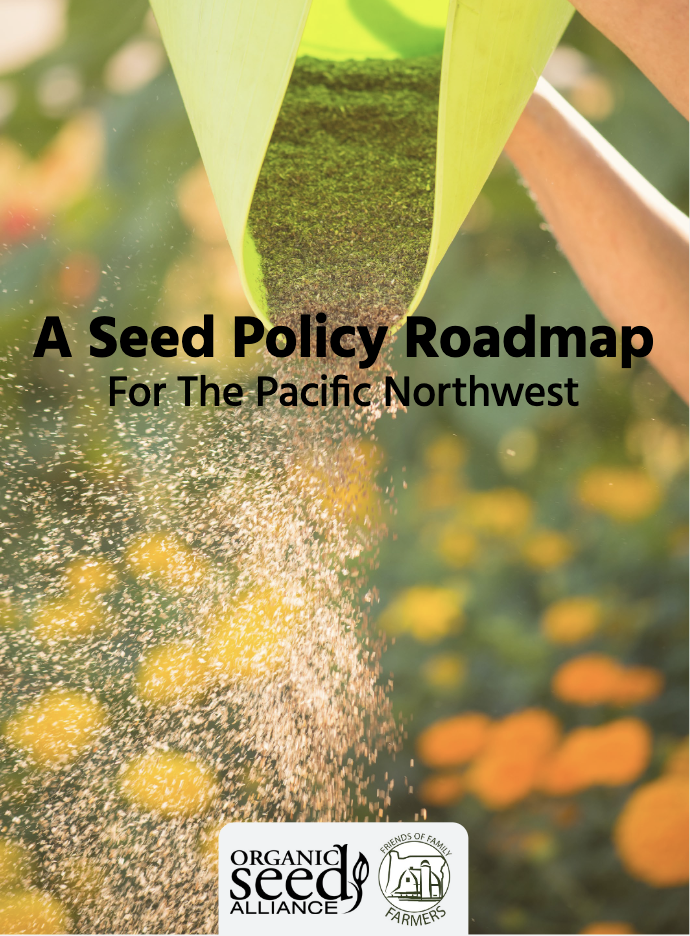
Seed, a universal symbol of hope and nourishment, represents the cycle of life for most agricultural crops. As a fundamental input in agriculture, seed serves as a farmer’s first defense against pest, disease, and other production challenges. Seed genetics also largely dictate the quality and integrity of our food — from appearance to flavor to nutritional content. In this way, seed holds endless potential for transforming how we farm and what we eat, especially when coupled with the foundational tenets of the organic movement — health, ecology, fairness, and mindful stewardship of the land.
The Pacific Northwest (PNW) has the potential to be a leader in organic and non-GMO vegetable seed production due to the region’s ideal climate and environmental conditions. Organic seed production is also urgently needed to support the growing demand for organic food, now a $56 billion industry. When rooted in agroecology and fairness, organic production can serve as an impactful solution to daunting problems, such as climate change, market consolidation, and pesticides in our environment.
The COVID-19 pandemic highlighted critical fractures in conventional agriculture supply chains. Now, more than ever, policy makers should make investments in resilient regional food systems. Because the PNW faces a series of cascading climate and other extreme weather events, it is critical that the region prioritize food security. Organic and non-GMO seed production in the PNW should be a cornerstone of regional food security efforts. However, additional resources and protections for organic and non-GMO seed growers are needed, as is strengthened education and outreach to better influence regional legislative and regulatory policy in light of inadequate federal regulations.
This Roadmap was developed by Organic Seed Alliance and Friends of Family Farmers with input from additional regional stakeholders. The Roadmap lays out 1) why this work is important, 2) an overview of regional seed advocacy already underway, 3) suggested policy approaches for moving forward, and 4) a toolkit of resources for seed policy advocates.
Included in the Roadmap is an interactive map of important seed policy initiatives across the U.S. Find the map using the button below.
There are several ways that seed advocates can help execute this roadmap and policy platform. Here are three ideas:
- Share this strategy roadmap and policy platform with food and farming organizations in your city and state, especially groups that actively engage in state policy making.
- Join an existing membership organization in the Pacific Northwest that is already involved in seed policy. (See Appendix A for a list of PNW organizations that support organic/non-GMO seed.)
- Share this strategy roadmap and policy platform with politicians who represent you in your county and state. Set up a meeting to discuss your concerns as a grower or consumer and ask what it would take to get their support. Share outcomes from these meetings with allies, including the organizations referenced above.
It is imperative that seed advocates and stewards engage in advocacy to advance shared policy priorities to ensure that this living, natural resource is managed respectfully, shared appropriately, and protected for future generations. Organic Seed Alliance (OSA) hopes the following roadmap will serve as a starting place to help advocates identify where they can make an impact and where they themselves are impacted by current policies and procedures. Together we can shape the future of food and farming with each seed we steward and plant. Together we can shape the future of seed policy with each advocacy action we take.
This project was made possible thanks to the Bullitt Foundation.

